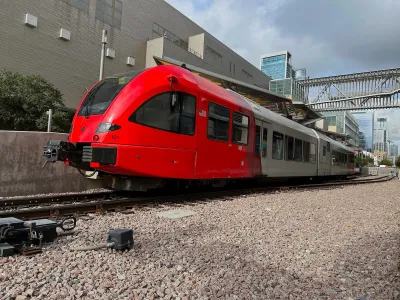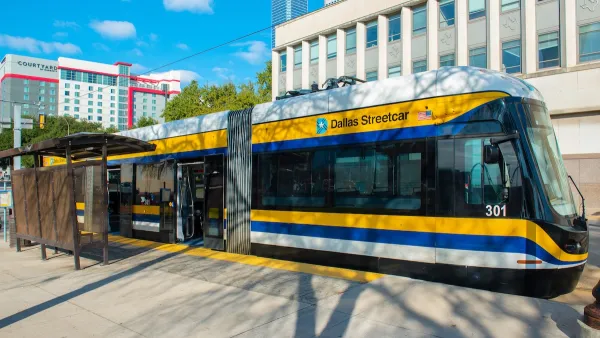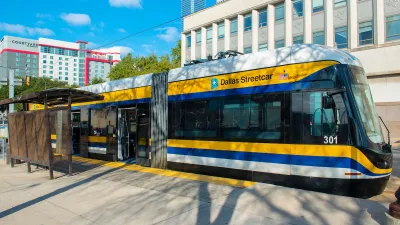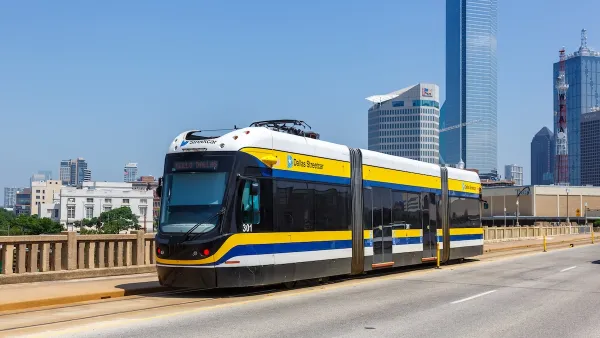State lawmakers could pull funding from the state’s largest transit agency and the ambitious Project Connect, a voter-approved transit project in Austin.

Texas state legislators are proposing bills that would gut funding for the Dallas Area Rapid Transit system and the massive public transit project in Austin known as Project Connect.
As Joshua Fechter explains in The Texas Tribune, “North Texas legislators want to reroute 25% of the sales tax revenue collected by DART, which serves Dallas and 12 neighboring cities, toward a ‘general mobility program.’ Those cities could then draw upon those funds to pay for projects like building sidewalks and roads and installing traffic signals.” The loss of revenue would be catastrophic for the transit agency, which would have to make service cuts and layoffs that would eliminate service for over 125,000 riders.
According to Fechter, “Regional transportation planners warn cutting DART’s funding so drastically will hamper mobility across the entire Dallas-Fort Worth region, worsen air quality and throw a wrench in public transit plans for next year’s FIFA World Cup, when the region will host nine matches.”
Two bills sponsored by state Republicans would eliminate Project Connect’s funding plan. The bills’ sponsors argue that the funding mechanism used to create revenue for the project, which was approved by Austin voters, should not be used for paying debt and therefore cannot support Project Connect’s capital costs.
FULL STORY: Texas Republicans take aim at public transit in two major cities

Planetizen Federal Action Tracker
A weekly monitor of how Trump’s orders and actions are impacting planners and planning in America.

Maui's Vacation Rental Debate Turns Ugly
Verbal attacks, misinformation campaigns and fistfights plague a high-stakes debate to convert thousands of vacation rentals into long-term housing.

San Francisco Suspends Traffic Calming Amidst Record Deaths
Citing “a challenging fiscal landscape,” the city will cease the program on the heels of 42 traffic deaths, including 24 pedestrians.

Amtrak Rolls Out New Orleans to Alabama “Mardi Gras” Train
The new service will operate morning and evening departures between Mobile and New Orleans.

The Subversive Car-Free Guide to Trump's Great American Road Trip
Car-free ways to access Chicagoland’s best tourist attractions.

San Antonio and Austin are Fusing Into one Massive Megaregion
The region spanning the two central Texas cities is growing fast, posing challenges for local infrastructure and water supplies.
Urban Design for Planners 1: Software Tools
This six-course series explores essential urban design concepts using open source software and equips planners with the tools they need to participate fully in the urban design process.
Planning for Universal Design
Learn the tools for implementing Universal Design in planning regulations.
Heyer Gruel & Associates PA
JM Goldson LLC
Custer County Colorado
City of Camden Redevelopment Agency
City of Astoria
Transportation Research & Education Center (TREC) at Portland State University
Jefferson Parish Government
Camden Redevelopment Agency
City of Claremont





























